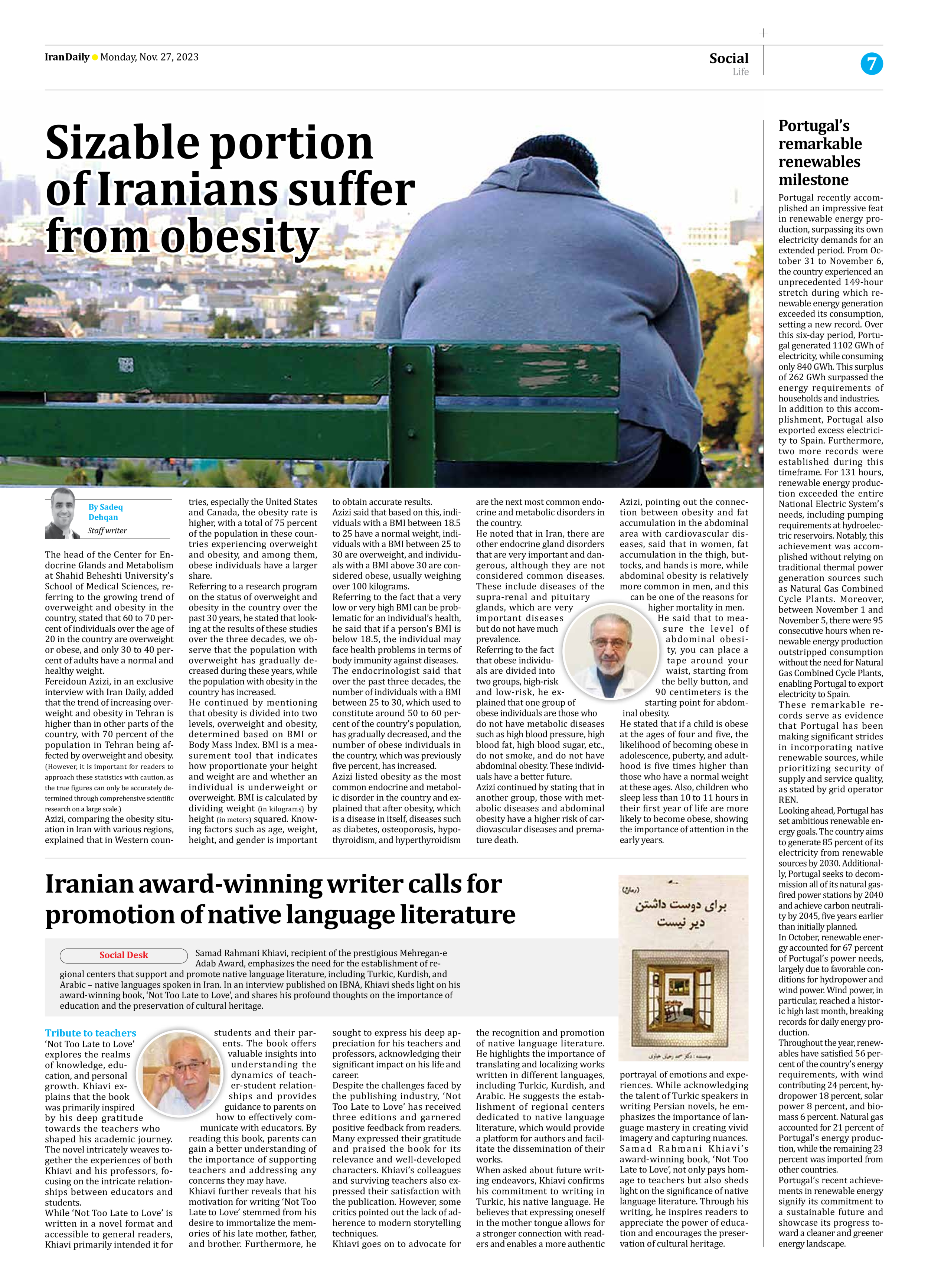
Portugal’s remarkable renewables milestone
Portugal recently accomplished an impressive feat in renewable energy production, surpassing its own electricity demands for an extended period. From October 31 to November 6, the country experienced an unprecedented 149-hour stretch during which renewable energy generation exceeded its consumption, setting a new record. Over this six-day period, Portugal generated 1102 GWh of electricity, while consuming only 840 GWh. This surplus of 262 GWh surpassed the energy requirements of households and industries.
In addition to this accomplishment, Portugal also exported excess electricity to Spain. Furthermore, two more records were established during this timeframe. For 131 hours, renewable energy production exceeded the entire National Electric System’s needs, including pumping requirements at hydroelectric reservoirs. Notably, this achievement was accomplished without relying on traditional thermal power generation sources such as Natural Gas Combined Cycle Plants. Moreover, between November 1 and November 5, there were 95 consecutive hours when renewable energy production outstripped consumption without the need for Natural Gas Combined Cycle Plants, enabling Portugal to export electricity to Spain.
These remarkable records serve as evidence that Portugal has been making significant strides in incorporating native renewable sources, while prioritizing security of supply and service quality, as stated by grid operator REN.
Looking ahead, Portugal has set ambitious renewable energy goals. The country aims to generate 85 percent of its electricity from renewable sources by 2030. Additionally, Portugal seeks to decommission all of its natural gas-fired power stations by 2040 and achieve carbon neutrality by 2045, five years earlier than initially planned.
In October, renewable energy accounted for 67 percent of Portugal’s power needs, largely due to favorable conditions for hydropower and wind power. Wind power, in particular, reached a historic high last month, breaking records for daily energy production.
Throughout the year, renewables have satisfied 56 percent of the country’s energy requirements, with wind contributing 24 percent, hydropower 18 percent, solar power 8 percent, and biomass 6 percent. Natural gas accounted for 21 percent of Portugal’s energy production, while the remaining 23 percent was imported from other countries.
Portugal’s recent achievements in renewable energy signify its commitment to a sustainable future and showcase its progress toward a cleaner and greener energy landscape.







